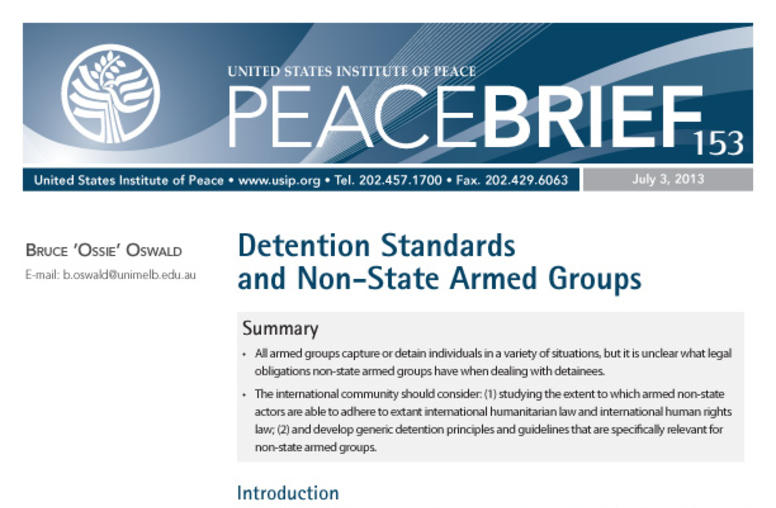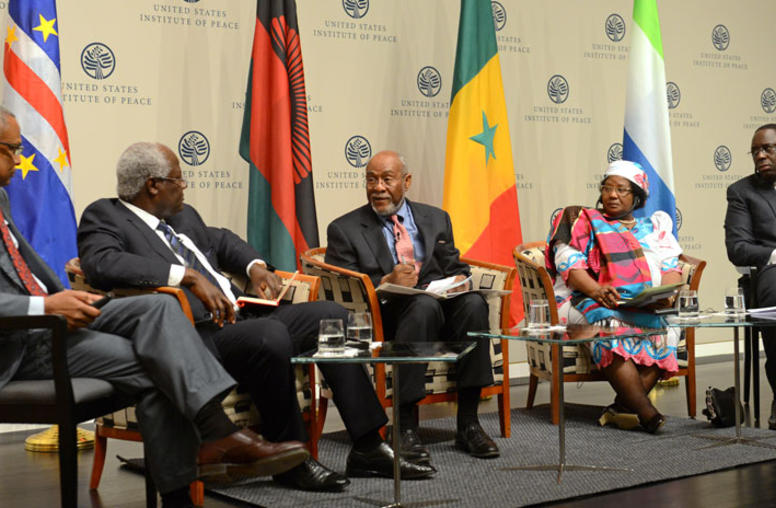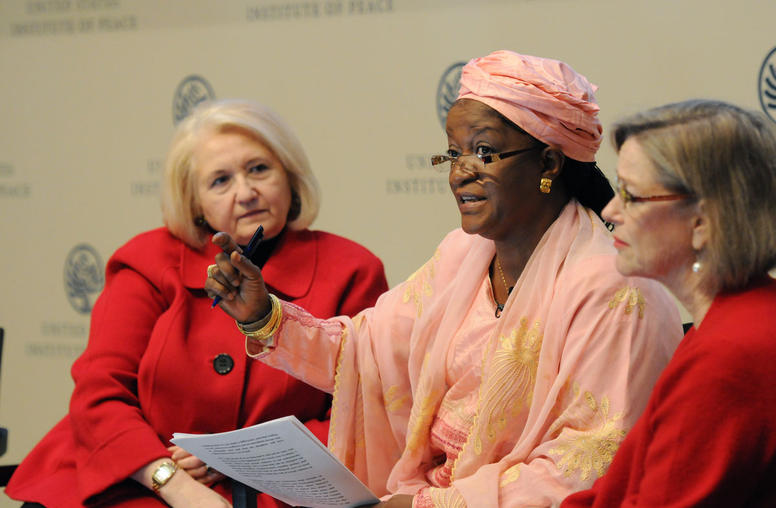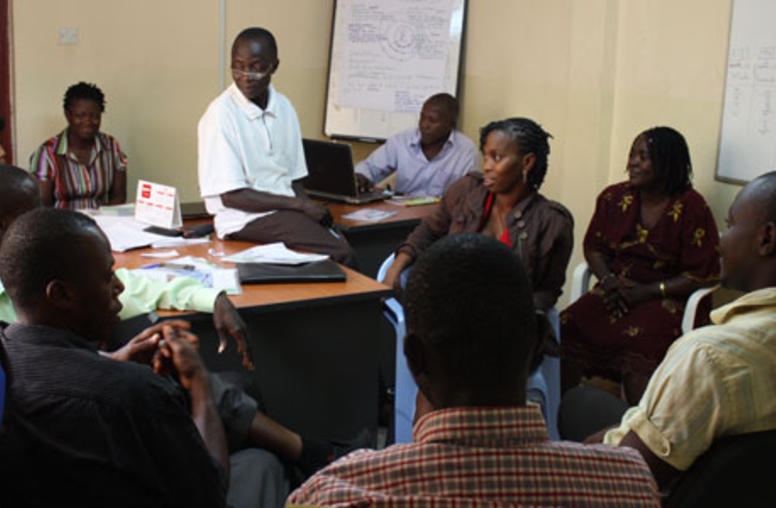Rethinking Truth and Reconciliation Commissions: Lessons from Sierra Leone
As the international community reflects on the tragedy in Rwanda ten years ago, the question of how societies should attempt to heal the wounds from past virulent conflicts has recently received renewed interest by members of the press, policy, and NGO community around the globe.

Summary
- After an eleven-year civil war that became internationally notorious for mutilation, sexual violence, and the targeting of children, a Truth and Reconciliation Commission (TRC) began its public hearings in April 2003. Increasingly, truth commissions are regarded as a standard part of conflict resolution "first aid kits."
- Despite pressure from local NGOs and human rights activists for a TRC, there was little popular support for bringing such a commission to Sierra Leone, since most ordinary people preferred a "forgive and forget" approach.
- This response was partly attributable to issues that can arise whenever truth commissions are established or contemplated: fear of retaliation by perpetrators; fear of government reprisals; and concerns arising from the concurrent operation of different transitional justice mechanisms (in this case, the TRC and the Special Court for Sierra Leone).
- But in addition to these issues, the widespread appeal of a "forgive and forget" approach derived from local strategies of recovery and reintegration that were never seriously addressed in Sierra Leone's TRC.
- Sierra Leone's TRC, like South Africa's, valorized a particular kind of memory practice: "truth telling," the public recounting of memories of violence. This valorization, however, is based on problematic assumptions about the purportedly universal benefits of verbally remembering violence.
- Ideas concerning the conciliatory and therapeutic efficacy of truth telling are the product of a Western culture of memory deriving from North American and European historical processes. Nations, however, do not have psyches that can be healed. Nor can it be assumed that truth telling is healing on a personal level: truth commissions do not constitute therapy.
- In northern Sierra Leone, social forgetting is a cornerstone of established processes of reintegration and healing for child and adult ex-combatants. Speaking of the war in public often undermines these processes, and many believe it encourages violence.
- In Sierra Leone's TRC, however, sensitization materials and commissioners' speeches promoted the healing and reconciliatory powers of verbal remembering, often explicitly discounting local understandings of healing and reconciliation in terms of social forgetting.
- People in both urban and rural locations were divided about the TRC, and in several communities people collectively agreed not to give statements.
- Before a truth commission or TRC is initiated in a particular setting, it is important to establish whether such an exercise has popular support—not only among local NGOs but also among ordinary survivors.
- Truth commission reports can provide crucial frameworks for debates about violence and repression, and can foster the development of stable national institutions. Sierra Leone's Truth and Reconciliation Report offers this framework. But where there is no popular support for a truth commission, we need to find alternative ways of producing such reports.
- Where a truth commission or TRC is initiated, it will be more effective if it builds upon established practices of healing and social coexistence. If we discount or ignore such processes, we may jeopardize any form of social recovery.
About the Report
As the international community reflects on the tragedy in Rwanda ten years ago, the question of how societies should attempt to heal the wounds from past virulent conflicts has recently received renewed interest by members of the press, policy, and NGO community around the globe. How effective are truth and reconciliation commissions? How can they build on grassroots practices of reconciliation, reintegration, and healing to develop a new generation of commissions that are more locally effective in dealing with the aftermath of conflicts?
Building on findings from her extensive field research on local practices of reintegration in northern Sierra Leone, and on the district hearings of this country's TRC, Shaw analyzes the contentious relationship among memory, healing, and reconciliation in these contrasting arenas and critically examines the purported therapeutic and conciliatory effects of TRCs.
Rosalind Shaw is Associate Professor and Chair of Anthropology at Tufts University, where she has taught since 1989. She was a Senior Fellow at the United States Institute of Peace during 2003–04 and is currrently a Fellow at Harvard University's Carr Center for Human Rights Policy (2004–05). She conducts research and teaches classes on the anthropology of mass violence and reconstructruction, social memory, religion, and Africa. She has conducted field research in Sierra Leone since 1977, has published numerous books and articles, and is the author of Memories of the Slave Trade: Ritual and the Historical Imagination in Sierra Leone, which was a finalist for the 2003 Herskovits Prize for the best scholarly work on Africa.



